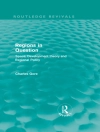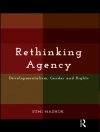Students at postgraduate, and increasingly at undergraduate, level are required to undertake research projects and interviewing is the most frequently used research method.
Interviewing for Social Scientists provides a comprehensive and authoritative introduction to interviewing. It covers all the issues that arise in interview work: theories of interviewing; design; application; and interpretation. Richly illustrated with relevant examples, each chapter includes handy statements of ‘advantages’ and ‘disadvantages’ of the approaches discussed.
Tabella dei contenuti
Interviews and Research in the Social Sciences
Triangulation in Data Collection
Why Interviews?
Designing an Interview-Based Study
Feasibility and Flexibility
Approaches to Interviewing
Achieving a Successful Interview
Interviewing in Specialised Contexts
Protecting Rights and Welfare
Transcribing the Data
Meanings and Data Analysis
Writing the Report, Disseminating the Findings
Circa l’autore
Dr. Peter T. Knight has worked. in the Department of Educational Research at Lancaster University, UK, since 1990. He was previously the Head of the Department of History at St. Martin′s College of Higher Education, Lancaster, UK.












